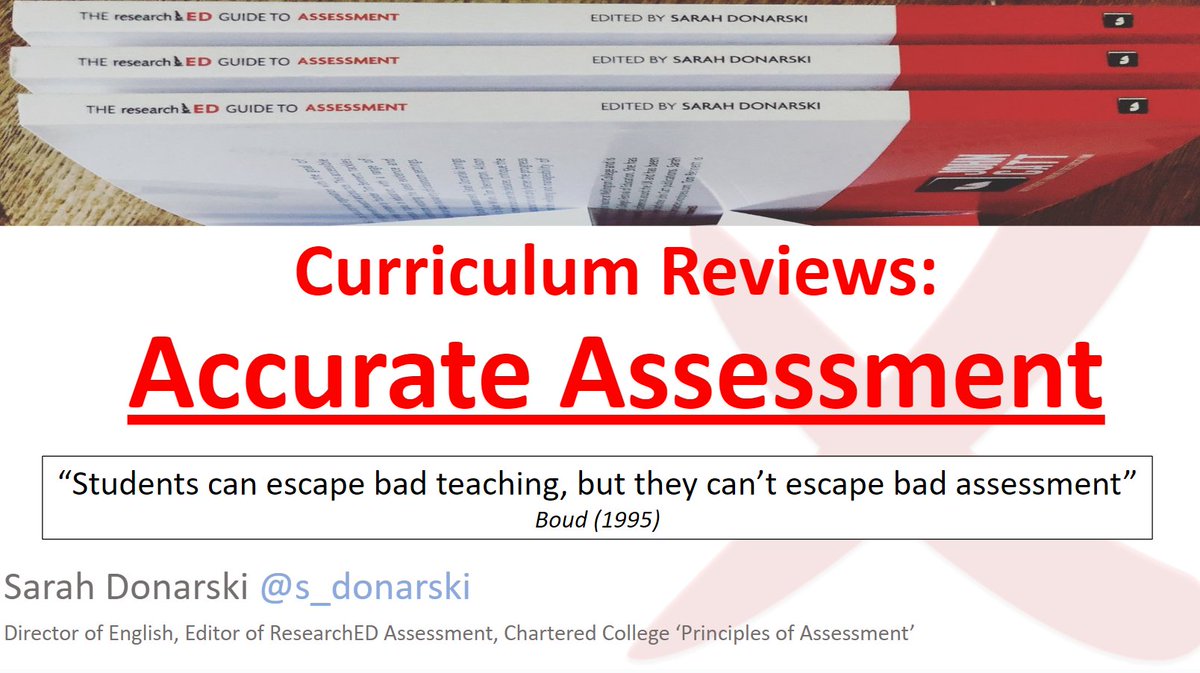🚩Here's a summary of my talk from Aberdeen @researchEDScot1
✅1. Reverse engineer your curriculum by looking at your results vs predictions first. Results indicate areas of strength, weakness, and/or bias; comparing predictions helps see whether you know your curriculum cracks.
✅1. Reverse engineer your curriculum by looking at your results vs predictions first. Results indicate areas of strength, weakness, and/or bias; comparing predictions helps see whether you know your curriculum cracks.

✅2. Break down your year to its end goals. Break down your schemes to their end goals. Then, look at the skills you need to embed to reach those goals. Add assessments here.
✅3. Adding assessment is NOT adding more marking. Create an assessment and match your assessment type to an efficient, quick, and constructive method. Your aim is to eliminate the hours teachers spent correcting a range of misconceptions.
✅4. Now spiral this down to KS3. Add assessments here that pre-empt vocabularies and skills required for KS4/KS5.
✅5. Also add assessments in KS3 that also promote flexible learning. We are not just drilling rote and inflexible learning to exams; we need to teach, test, and train students to think. Think @MaryMyatt and KS3 as the "intellectual powerhouse".
✅6. Assessments are NOT grade gathering for bureaucracy. It is to add intervention and fix misconceptions. This should be embedded in whole-school policy to reflect exactly what data means... It is a capture of a student's learning journey, so that we can fix it.
✅7. Finally, assessments are a journey. They should happen every minute in your classroom - from a memory retention starter, to live marking while students quietly write. The purpose is to change the student.
• • •
Missing some Tweet in this thread? You can try to
force a refresh




